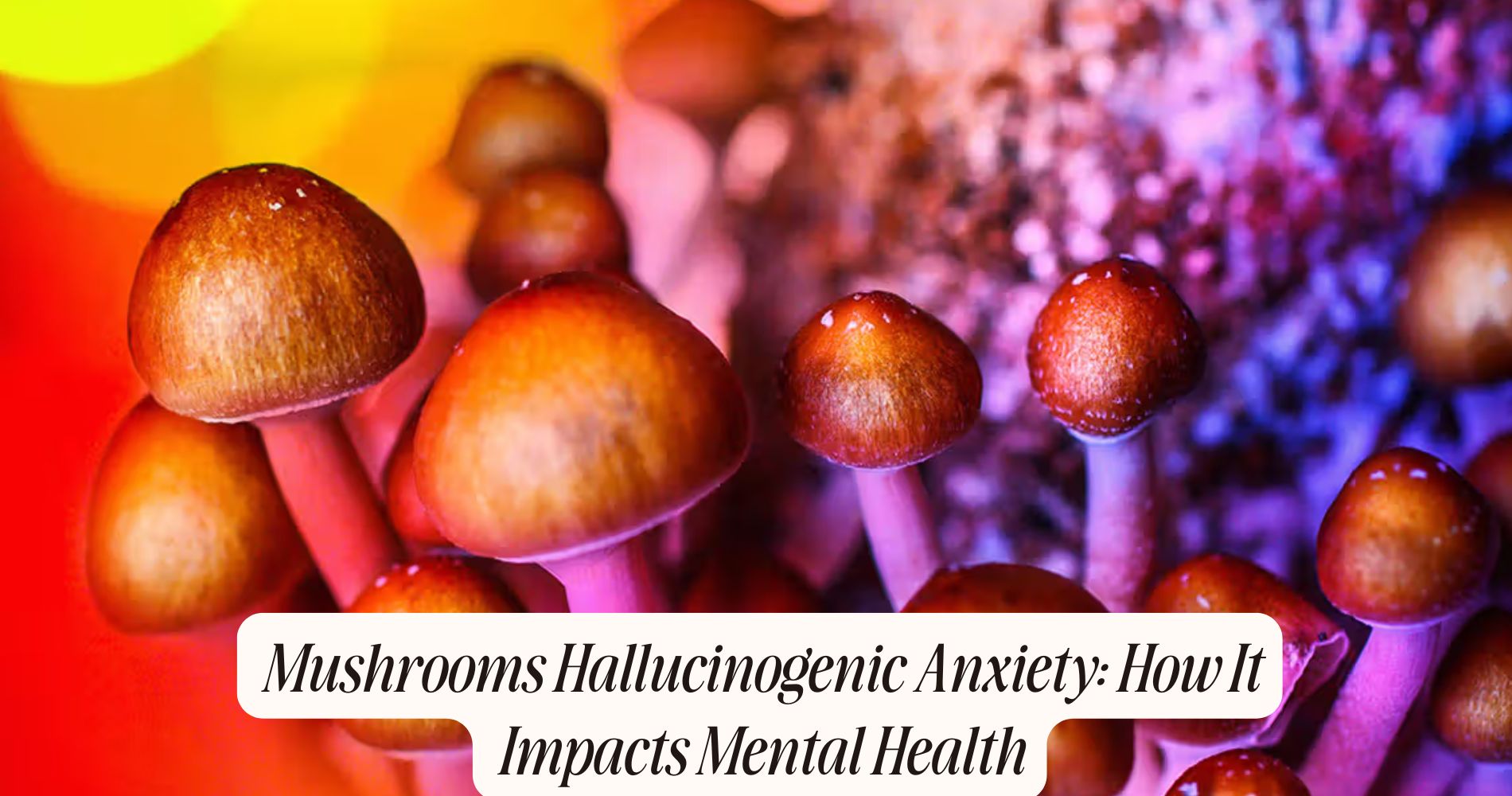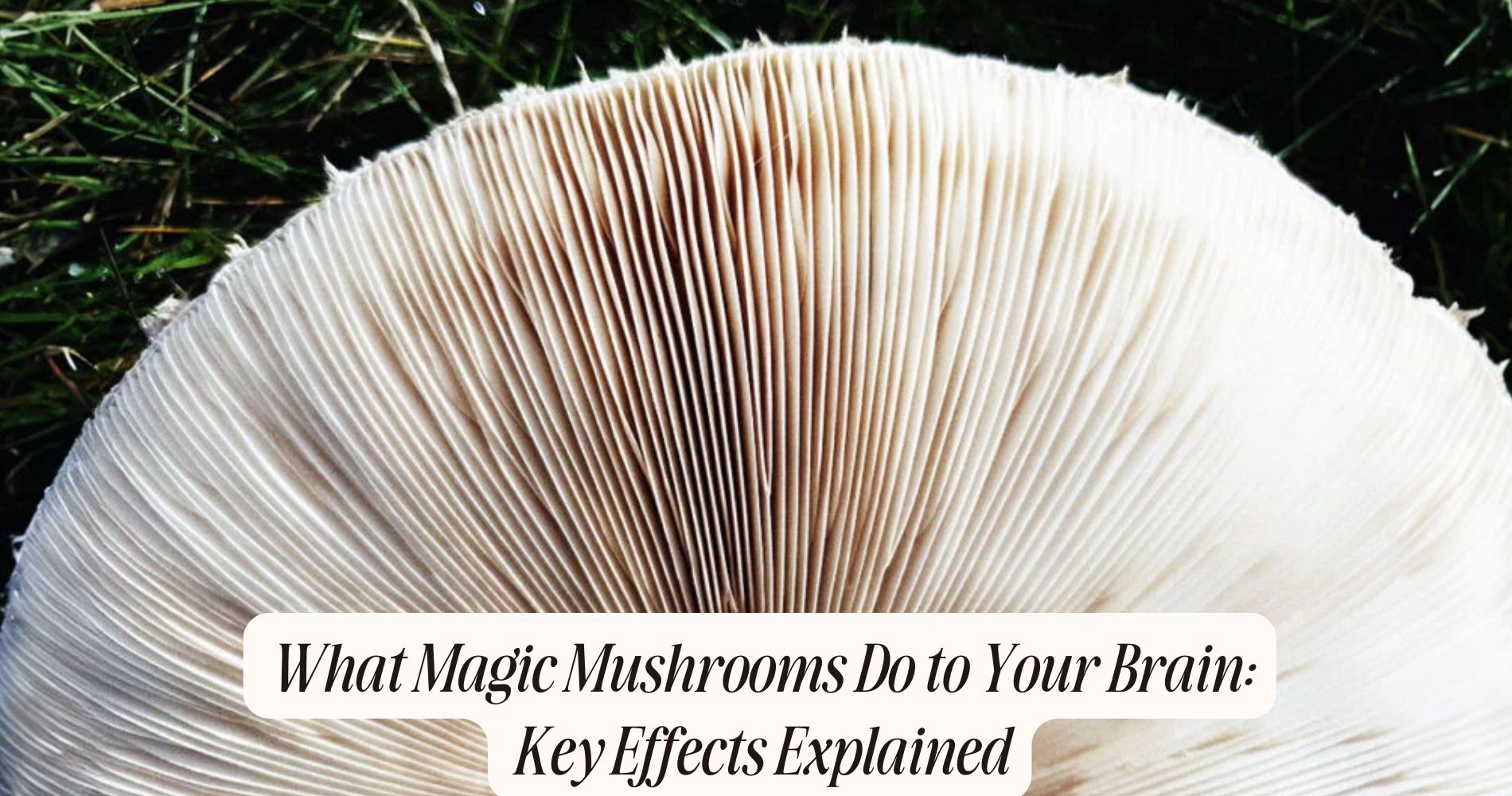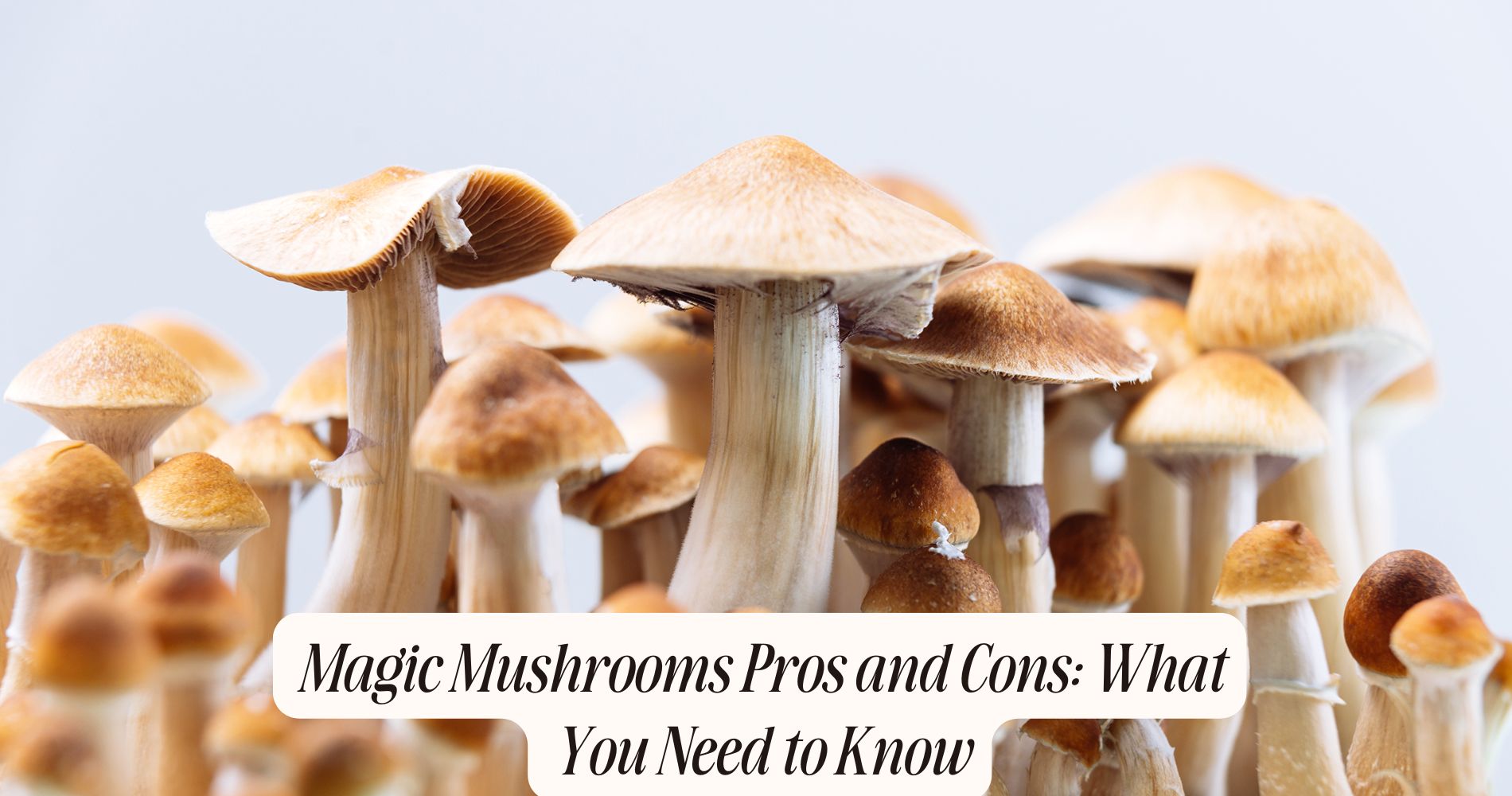
Mushrooms Hallucinogenic Anxiety: How It Impacts Mental Health
Understanding Hallucinogenic Mushrooms
Exploring the world of hallucinogenic mushrooms reveals their complex relationship with mental health. These mushrooms, primarily classified under the genus Psilocybe, contain the psychoactive compound psilocybin. Historically, indigenous cultures have utilized these fungi in spiritual and healing rituals, showcasing their long-standing connection to mental health and well-being.
When you dive deeper into mushroom classification, you'll find that not all mushrooms have hallucinogenic properties. Among the over 180 species identified worldwide, only a select few are considered potent, such as Psilocybe cubensis and Psilocybe semilanceata.
These distinctions matter, as the effects and potential therapeutic benefits can vary considerably between species.
Research has shown that psilocybin can alter perception, mood, and cognition, offering insights into treating conditions like anxiety and depression.
However, it's crucial to approach this topic with caution. The historical usage of hallucinogenic mushrooms highlights their potential benefits and risks, particularly in non-controlled environments.
The Role of Psilocybin
Psilocybin, the active compound in certain mushrooms, interacts with serotonin receptors in your brain, influencing mood and perception.
Research is increasingly highlighting its therapeutic potential, particularly in treating conditions like depression and anxiety.
Understanding how psilocybin works may open new avenues for mental health treatment, offering hope to those who struggle.
Mechanism of Action
At the heart of recent advances in mental health treatment lies psilocybin, a naturally occurring compound found in certain mushrooms. This compound primarily affects the brain through its interactions with serotonin receptors, particularly the 5-HT2A receptor. When you ingest psilocybin, it's converted into psilocin, which actively binds to these receptors, leading to significant receptor activation.
This interaction results in altered neurotransmitter dynamics, which can shift your perception, mood, and thought patterns. Research indicates that these neurotransmitter interactions can help alleviate symptoms of anxiety and depression by promoting neuroplasticity—the brain's ability to adapt and reorganize.
As psilocybin enhances connectivity between different brain regions, you may begin to experience a sense of interconnectedness and a reduction in rigid thought patterns that often accompany mental health issues.

Moreover, the changes in neurotransmitter activity can foster a more profound introspective experience, allowing you to confront and process emotions that you might typically avoid.
Consequently, understanding the mechanism of action of psilocybin is essential as it highlights the potential for transformative experiences in mental health treatment, paving the way for new therapeutic approaches.
Therapeutic Potential Explored
Recent studies have illuminated the therapeutic potential of psilocybin beyond its basic mechanism of action. In your exploration of mushroom therapy, you'll find that psilocybin research has revealed promising results for treating various mental health conditions, including depression, anxiety, and PTSD. By engaging with this compound, you might experience profound shifts in perspective and emotional release, which can lead to lasting changes in mental health.
Clinical trials have shown that, when administered in controlled settings, psilocybin can facilitate deep psychological insights, helping individuals confront and process their fears. This therapeutic approach isn't just about the trip; it's about the integration of the experience into daily life. You might appreciate that the supportive environment during sessions maximizes the benefits and minimizes risks, making mushroom therapy a compelling alternative for those who've struggled with traditional treatments.
Moreover, ongoing psilocybin research indicates that these sessions can enhance the neural connectivity in your brain, fostering new pathways for emotional regulation. As the stigma around psychedelics fades, you may find that psilocybin offers a beacon of hope for mental health recovery, encouraging deeper understanding and lasting healing.
Anxiety and Hallucinogenic Experiences
The interplay between anxiety and hallucinogenic experiences highlights a complex relationship that can reveal both the vulnerabilities and potential healing paths for individuals.
When you confront anxiety triggers during a hallucinogenic experience, the hallucinogenic effects can amplify your emotional processing. This heightened state may lead to altered perceptions of reality, allowing you to explore feelings that you typically avoid.
However, psychological resistance can arise, manifesting as fear or panic. To navigate this, effective trip preparation is essential. Engaging in mindfulness practices prior to your experience can create a grounded mindset, reducing anxiety and enhancing your ability to confront challenging emotions.
Establishing strong support systems is important too, as having trusted individuals nearby can provide reassurance and comfort during intense moments.
After the experience, integration therapy becomes crucial for processing what you've encountered, helping you weave insights into your daily life. Fear management techniques can further aid in mitigating anxiety in future experiences, allowing you to approach hallucinogens with greater confidence.
Therapeutic Benefits of Mushrooms
Exploring the therapeutic benefits of mushrooms, particularly those containing psilocybin, can reveal their profound potential in addressing various mental health challenges, including depression and PTSD.
Recent studies show that mushroom therapy can considerably enhance mental wellness, offering relief where traditional treatments may fall short.
When you engage with psilocybin, it acts on serotonin receptors in your brain, potentially fostering new neural connections and improving emotional regulation. This can lead to lasting changes in perspective and mood, often providing a sense of relief after just a few sessions.

Many participants in clinical trials report not only reduced symptoms of anxiety and depression but also an increased sense of connectedness and purpose.
Moreover, the structured environment of mushroom therapy, often guided by trained professionals, helps guarantee safety and support during the experience.
This creates a space where you can confront underlying trauma, facilitating healing and personal growth.
Risks of Anxiety During Trips
While many people experience profound insights and emotional breakthroughs during psilocybin trips, it's important to acknowledge the potential for anxiety to arise in these situations. Anxiety triggers can vary widely, from personal insecurities to external environments. If you're in an unfamiliar setting or surrounded by people you don't trust, the anxiety can intensify, detracting from the experience you hoped to have.
The trip duration can also play a significant role in how anxiety manifests. Extended trips may lead to heightened feelings of vulnerability and uncertainty, especially as the effects peak and wane. During these moments, it's essential to remain aware of your mental state. Grounding techniques, like focusing on your breath or repeating affirmations, can help you navigate through overwhelming feelings.
Understanding these risks doesn't mean you should avoid psilocybin altogether. Instead, it's about preparation and awareness. Consider creating a safe and comfortable environment, setting intentions beforehand, and having a trusted trip sitter present.
Personal Accounts of Anxiety
Many individuals report anxiety as a significant part of their psilocybin experiences, illustrating the complex interplay between mindset and the effects of the substance. You might find yourself confronting unexpected fearful experiences, often stemming from unresolved personal issues or external stressors. These moments can feel overwhelming, leaving you grappling with intense emotions and a sense of disconnection.
In these situations, many people reflect on their past, leading to insights but also heightened anxiety. It's essential to recognize that these feelings can be a normal response to the profound nature of the experience. Some individuals describe feeling trapped in a cycle of negative thoughts, spiraling deeper into anxiety as they navigate their altered state of consciousness.

Coping mechanisms can play a significant role in managing these feelings. Many turn to grounding techniques, such as focusing on their breath or connecting with their physical surroundings, to alleviate distress.
Others find comfort in sharing their experiences with trusted friends, which helps normalize their feelings and fosters a sense of community. Understanding that anxiety can be part of the journey allows you to approach these experiences with greater awareness and compassion for yourself.
Strategies for Managing Anxiety
Understanding how to manage anxiety effectively can greatly enhance your psilocybin experience. One of the most impactful strategies is incorporating mindfulness techniques into your routine. Mindfulness encourages you to focus on the present moment, helping you to recognize anxious thoughts without judgment.
Practices like deep breathing and body scans can ground you, making it easier to navigate the emotional landscape during your experience.
Another effective approach is cognitive restructuring. This involves identifying negative thought patterns and challenging them. By reframing your perspective, you can reduce feelings of anxiety. For instance, instead of thinking, "I can't handle this," try shifting to, "I've faced challenges before and can manage this too."
Combining these strategies can empower you to face anxiety head-on. Engaging in mindfulness techniques before your psilocybin journey can set a positive tone, while cognitive restructuring during the experience can help you process emotions more constructively.
The Future of Psychedelic Research
The future of psychedelic research holds immense promise, particularly in the field of mental health treatment. As more studies reveal the potential benefits of substances like psilocybin and MDMA, you might find yourself wondering how these findings could reshape current therapeutic approaches. The evolving psychedelic policy landscape is vital here, as it can facilitate or hinder research efforts.
Recent clinical trials have shown that psychedelics can alleviate symptoms of anxiety, depression, and PTSD, leading to a surge of interest in their future applications. Imagine a world where these substances are integrated into mainstream therapy, offering relief where traditional treatments have fallen short.
Moreover, as researchers continue to explore the mechanisms behind psychedelic experiences, you can expect a deeper understanding of how they interact with the brain's neurochemistry. This knowledge won't only enhance therapeutic efficacy but also guide the development of novel treatments.

However, for this potential to be fully realized, supportive psychedelic policy is essential. It paves the way for safe, responsible research and accessibility for those in need.
The future of psychedelic research isn't just about potential; it's about transforming mental health treatment as we understand it.
Legal and Ethical Considerations
As the landscape of psychedelic research expands, legal and ethical considerations become increasingly important. You may find yourself traversing a complex terrain of laws that vary widely across regions. Decriminalization efforts in places like Oregon and Colorado have sparked conversations about the potential benefits of psilocybin mushrooms for mental health.
However, these changes come with ethical implications that warrant your attention. While decriminalization may increase accessibility, it raises questions about informed consent, especially for vulnerable populations. You need to reflect on how individuals with existing mental health issues might react to psychedelics. The risk of exacerbating anxiety or triggering psychotic episodes can't be overlooked.
Additionally, the commercialization of psychedelics may lead to exploitation, where profit motives overshadow patient welfare. As you explore this field, it's vital to advocate for responsible research and compassionate use. Engaging in discussions about regulation, oversight, and education will help guarantee that the benefits of psilocybin are realized without compromising ethical standards.
Ultimately, balancing the promise of these substances with the need for safety and integrity will be significant as the conversation around mushrooms and mental health continues to evolve.
Find Balance with SUPER MUSHROOM GUMMIES
If you're seeking a natural way to manage anxiety and support your mental health, Well Gummies' SUPER MUSHROOM GUMMIES could be your go-to solution. With a blend of 10 functional mushrooms, these easy-to-use, vegan gummies help fuel your brain, providing calm energy, sharper focus, and immune support. Plus, they taste like fresh wild berries—delicious with no jitters or crash—keeping you balanced and clear-minded throughout the day.
Frequently Asked Questions
Can Hallucinogenic Mushrooms Cause Long-Term Psychological Effects?
Hallucinogenic mushrooms can lead to long-term effects on your mental state, but research suggests they may also enhance psychological resilience in some individuals. It is crucial to approach their use thoughtfully, considering both benefits and risks.
Are There Specific Mushrooms That Are More Likely to Induce Anxiety?
Certain specific species, like Psilocybe cubensis, can induce anxiety in some users. Dosage effects play an essential role; higher amounts may heighten anxiety, while lower doses could lead to a more manageable experience for you.
How Do Different Environments Affect Anxiety During a Mushroom Trip?
Your environment greatly influences your experience. Positive settings can foster calmness, while negative environmental factors, like noise or chaos, may heighten anxiety. Choosing a safe, comfortable space can enhance your overall mushroom trip experience.
What Should Someone Do if They Have a Bad Trip?
If you're having a bad trip, focus on grounding techniques and deep breathing. Seek emotional support from trusted friends, and remind yourself the experience will pass. Recognizing signs of distress can guide your bad trip strategies effectively.
Are There Age Restrictions for Using Hallucinogenic Mushrooms?
Yes, there are age restrictions for using hallucinogenic mushrooms. Many places require individuals to be of legal age, typically 18 or 21. Responsible usage is essential, emphasizing informed decision-making and understanding potential effects on mental health.
Conclusion
In exploring the complex relationship between hallucinogenic mushrooms and anxiety, it's clear that while they can offer therapeutic benefits, they also pose risks. Understanding your mental state and preparing for the experience is essential. By employing strategies to manage anxiety, you can navigate these journeys more effectively. As research continues to evolve, staying informed about the latest findings will empower you to make educated decisions about integrating psilocybin into your mental health journey.




